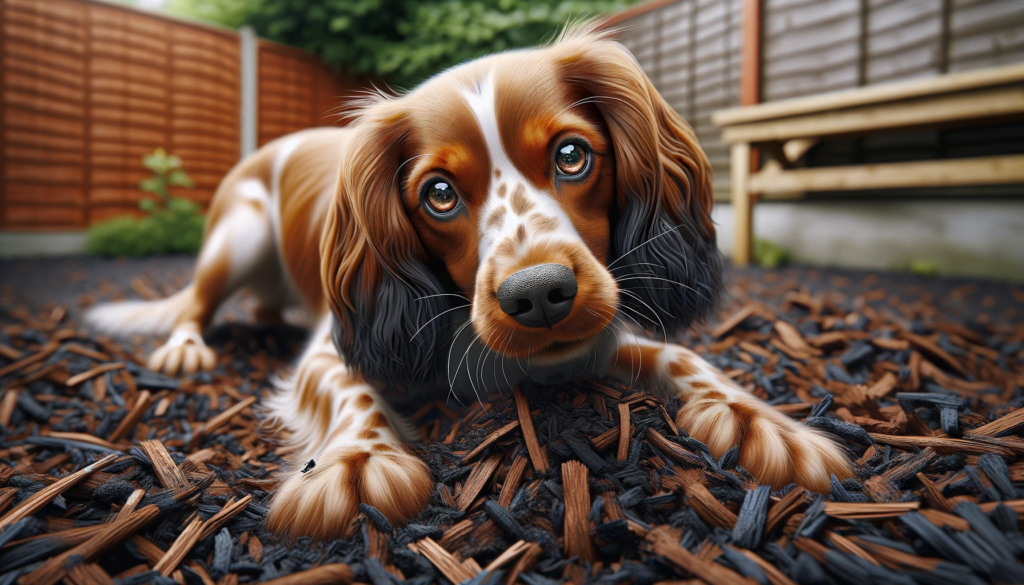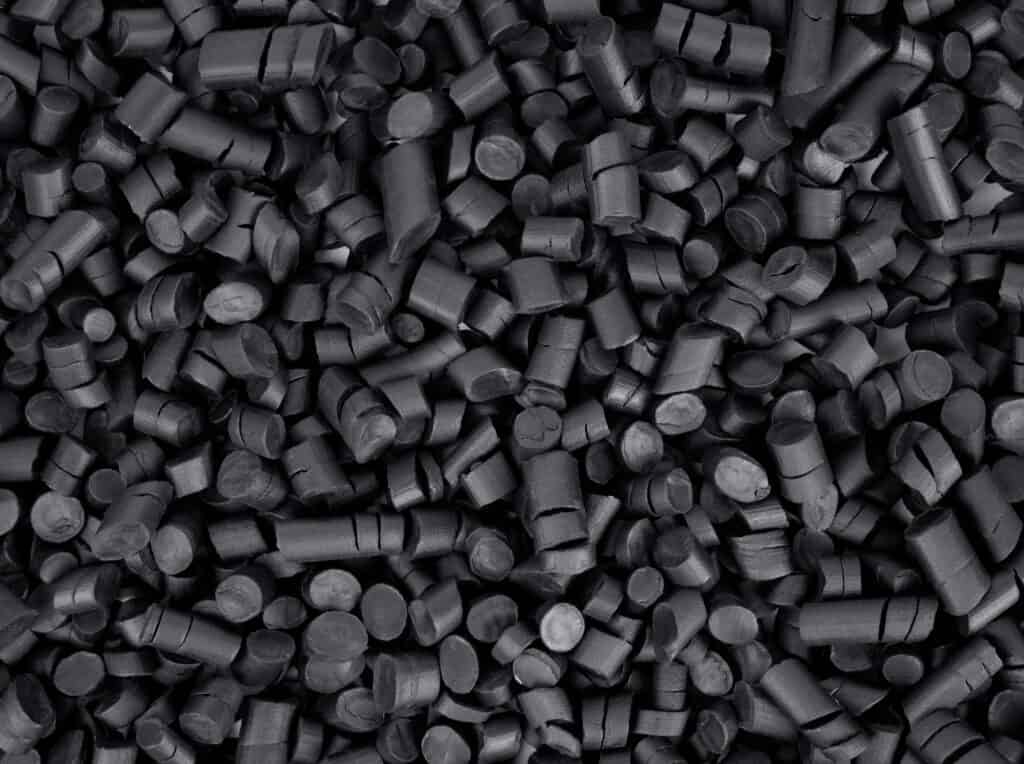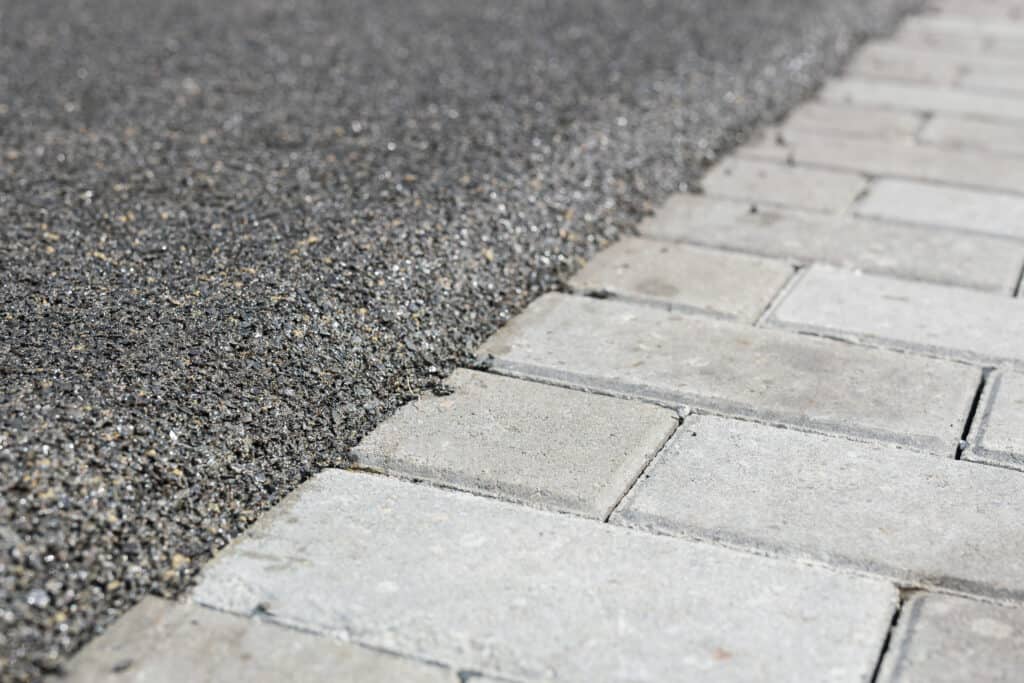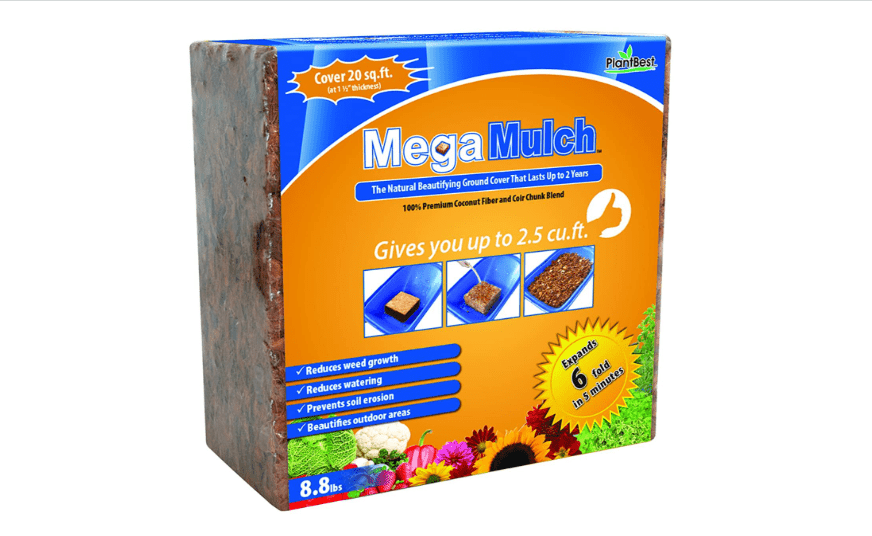*This page may include affiliate links, which means that if you make a purchase through one of the product links, we may receive a small commission. For full affiliate disclosure please see our disclaimer page.
Is rubber mulch safe for dogs? Before building a dog run or upgrading your landscaping you should know the answer. On the internet, there are a lot of conflicting answers. Some landscaping companies say it’s completely safe and non-toxic. I don’t fully agree and I want to share some information with concerned pet parents.
As a veterinarian, I have a unique perspective on this common question. In this article, you will get the facts and proof that this product is not as safe as manufacturers lead you to believe.

Is Rubber Mulch Safe For Dogs?
No, rubber mulch is not safe for dogs and is not a good substrate choice for dog runs. Most rubber mulch products are made out of recycled tires and can contain numerous toxic chemicals. I have also seen quite a few cases where a dog ate a piece or two and the outcome was extremely sad.
Will Dogs Eat Rubber Mulch?
It seems like dogs would not eat this product, and for the majority of pets, this is true. But some dogs will eat anything. Young dogs like to taste the environment, other pets are driven to eat odd materials due to nutrition deficiency. Stress and mental health also play a role in the unusual ingestion of items. Puppies are more likely to eat foreign objects. But I have seen many adult dogs experience a nutritional deficiency and start to eat weird stuff.
Most of these dogs are looking for calcium and other minerals. Injuries can change calcium requirements and food ingredients have variable absorption rates. Stress can impact nutritional needs as well. So, while 99% of dogs will not eat the rubber mulch, what if your dog is that 1%?

Heavy Metals in Rubber Mulch
Rubber mulch manufacturers like to state that their product is 99.9% free of metals. This is because in the process of making tires, metal wires are used in certain areas. When the tires are processed they try to remove all of the metal wires with magnets and filters. But it is not large pieces of metal that cause the danger, it is the addition of metals like lead into the actual rubber compound.
Studies of Rubber Mulch Products Have Found the Following Heavy Metals:
- Copper
- Iron
- Magnesium
- Aluminum
- Cadmium
- Chromium
- Manganese
- Molybdenum
- Selenium
- Sulfur
- Zinc
Some products have held so much zinc that the landscaping plants they planted in those flower beds died of zinc toxicity. Other experiments in coral reef rebuilding resulted in changes in the survival of plants, snails, fish, and plankton. (1)
Does Rubber Mulch Cause Cancer?
This answer obviously depends on the chemicals used and the exposure to your pet. But workers who have jobs in manufacturing or processing various rubbers have been found to have statistical connections to cancer.
The two most common cancers around these products around the world include leukemia and bladder cancer in humans. Studies using mice and rats showed multi-organ cancers along with lymphoma and hemangiosarcomas. (2) (3)
While every exposure is different, that’s still enough uncertainty of cancer risk for me to not lay this under my dog’s feet.
SIDE NOTE → Similar questions about cancer and rubber exposure have been raised in regards to children’s playgrounds and sports fields. These same recycled rubber products are used to provide a safe cushioned texture if children fall on the playground. But moms were worried about residues and started looking at reports. Athletic coaches became uncertain when multiple young healthy athletes were being diagnosed with non-Hodgkin lymphoma. And also that the majority of the cases were occurring in goalkeepers. Goalkeepers spend more time in contact with the turf, diving, and sliding.(4)(5)

Disruption of Soil Microbes By Rubber Mulch
Some rubber mulch companies state that their product is superior in preventing weeds than other types of mulch. They state ( syn ) that you won’t need any weed blocking landscaping fabric. That seemed odd to me at first, but then I read about the various chemicals that leach into the ground. These chemicals have a wide variety of possible effects, but almost all of them result in changes to the natural microbiome ecosystem. Many types of beneficial bacteria and bugs are killed off.
Rubber Mulch Contains Phthalates
This family of chemicals is becoming well known to consumers in the US. We see warnings everywhere and new products boast they are “phthalate free”. I found them in my deodorants and shampoos but they can be anywhere. We have learned that these compounds act like hormones and can cause changes in sex hormone levels. It could be linked to infertility and other medical issues.
Studies on Phthalates have been Linked to a Variety of Diseases Including:
- Breast cancer
- Obesity
- Type II diabetes
- Asthma
- ADHD
- Behavioral issues
- Autism spectrum disorders
- Altered reproductive development
- Male fertility issues
- Liver damage
- Kidney Failure
Foreign Bodies and Obstructions
Now it’s time to talk about those sad cases that I saw in veterinary clinics. Dogs are eating stuff all the time. Socks, underwear, and hairbands are probably the three most common. But dogs eat toys too, they rip them apart, pull out the stuffing and demolish the squeaker till it can squeak no-more. When dogs eat pieces of toys sometimes they get stuck, sometimes they are thrown up and sometimes they pass through.
However, sometimes foreign objects only cause a blockage intermittently. The pet will have a history of random vomiting over the course of days, weeks, or months. Most of the time, these objects turn out to be tennis balls, rubber toys, or chunks of plastic toys. These objects do not always show up on x-rays. Rubbers especially do not show up on x-rays, so much so that a major international brand of rubber dog toys made a whole product line that features a special ingredient that makes the chew toy show up on x-rays. (6)

Rubber objects that get stuck in pets require surgery to remove. The cases that I have seen in clinics had a very sad outcome in about 50% of the cases. While this means that only a handful of pets died…that is still a risk that I wound’t take. Especially since there are so many safe alternatives out there.
The mulch product that I use in and around my dog’s yard is Planter’s Pride PlantBest Mega Mulch.

References :
- https://s3.wp.wsu.edu/uploads/sites/403/2015/03/rubber-mulch.pdf
- https://www.ncbi.nlm.nih.gov/books/NBK304412/
- https://pubmed.ncbi.nlm.nih.gov/1732994/
- https://www.nbcnews.com/news/investigations/how-safe-artificial-turf-your-child-plays-n220166
- https://www.nbcnews.com/storyline/artificial-turf-debate/rubber-mulch-safe-surface-your-childs-playground-n258586
- https://www.rayallen.com/blue-radiopaque-kong/
Check out our other articles for even more knowledge to keep your dog healthy and happy!
7 Beneficial Herbs For Dogs That You Can Grow In Your Garden
Can Dogs Eat Blueberries? Are Blueberries Good For My Dog?
If you like our content before to LIKE, FOLLOW and SHARE!
